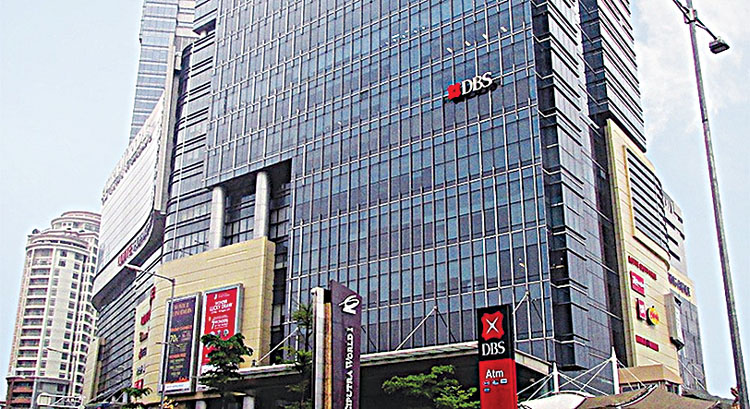In a bid to proactively adapt the new risk-free benchmarks on existing loans and derivatives, DBS Bank India has announced the first active transitioning of an existing loan and derivative to new reference rates. This is a key milestone for DBS and marks the bank’s first active transition process in India – an integral part of the benchmark transition plan of the bank to ensure seamless adoption of new Alternative Reference Rates (ARR) as Interbank Offered Rates (IBORs) are phased out. DBS has successfully transitioned some of the existing loan and derivative contracts with two companies – Power Finance Corporation Ltd & REC Limited – to the new reference rates. Existing contracts were benchmarked to Swap Offer Rate (SOR) [a legacy SGD floating benchmarked IBOR], and post this transition, all loans and derivatives have now moved to Singapore Overnight Rate Average (SORA), the new risk-free rate.
Speaking on the development, Ashhish Vaidya, Managing Director & Head of Markets, DBS Bank India, said, “Corporates with floating benchmarked foreign currency loans, especially those who have an interest rate or cross-currency hedges built around the floating rate borrowings, are concerned that benchmark transitioning may result in additional cost. This is because the loan and derivatives market will be transitioning independent of each other. We have pre-empted this client requirement and have curated an industry-first solution that addresses this. We believe the active transition has allowed us to demonstrate our ability to adapt to the benchmark change, thereby reinforcing client confidence in our credentials. We are now prepared to facilitate seamless transitions for other clients looking to embark on this journey.” Commenting on the transition, Mr Sanjay Malhotra, Chairman and Managing Director, REC, said, “We are delighted to be a part of the active transition opportunity given by DBS Bank for their SGD loans, which has enabled us to eliminate the uncertainty around the IBOR transition for the related loan. The experience gained from the transition process will also help REC in other LIBOR-linked term loans.”
As legacy interest rate benchmarks SOR and the Singapore Interbank Offered Rate (SIBOR) are systematically phased out, SORA is the recommended SGD interest rate benchmark which is expected to replace them. Banks across countries, including India, are also moving towards ARR benchmarks equivalent to SORA. In July 2021, RBI issued an advisory to banks and financial institutions notifying them to cease entering into new financial contracts referencing London Interbank Offered Rate (LIBOR). Since the advisory, banks in India have executed transactions linked to the Secured Overnight Financing Rate (SOFR) benchmark. DBS’ derivative deal is the first referencing SORA in India. The total external commercial borrowings (ECB) raised by the Indian corporates in CY 2020 and CY 2019 was USD 39 BN and USD 52 BN, respectively. Typically, ECBs are raised for longer tenors and linked to floating-rate benchmarks like LIBOR. It is expected that a large portion of the above capital raising will be impacted due to the transition.
Earlier, there was no clarification on the treatment of such transitions in the derivative contracts. As per extant instructions, a change in any of the parameters of the original contract was treated as restructuring, and the resultant change in the mark-to-market value of the contract on the date of restructuring is required to be cash-settled. In the Monetary Policy Committee meeting held on August 6, RBI, in a press release, clarified that amendment of existing derivatives for IBOR transition would be treated as a “force majeure event”, and changes to ARR will not be treated as restructuring. DBS has been engaging clients on the IBOR transition process since earlier this year, proactively recommending them to move to the new benchmarks. DBS’ transition to SORA-linked transactions and RBI’s clarification is expected to eliminate uncertainty around the impending transition of loans and derivatives to ARRs for other corporate clients of the bank and encourage this transition.

About DBS
DBS is a leading financial services group in Asia with a presence in 18 markets. Recognised for its global leadership, DBS has been named “World’s Best Bank” by Euromoney, “Global Bank of the Year” by The Banker and “Best Bank in the World” by Global Finance. The bank is at the forefront of leveraging digital technology to shape the future of banking, having been named “World’s Best Digital Bank” by Euromoney and the world’s “Most Innovative in Digital Banking” by The Banker. In addition, DBS has been accorded the “Safest Bank in Asia” award by Global Finance for 13 consecutive years from 2009 to 2021. DBS was also ranked No. 1 on Forbes’ list of the World’s Best Banks in India for two consecutive years. DBS Bank has been present in India for 27 years, opening its first office in Mumbai in 1994. DBS Bank India Limited is the first among the large foreign banks in India to start operating as a wholly-owned, locally incorporated subsidiary of a leading global bank. DBS provides an entire range of banking services for large, medium and small enterprises and individual consumers in India. In 2016, DBS launched India’s first mobile-only bank – digibank, which now has Rs1 million savings accounts. In November 2020, Lakshmi Vilas Bank was amalgamated with DBS Bank India Limited. The bank now has a network of nearly 600 branches across 19 states in India.

